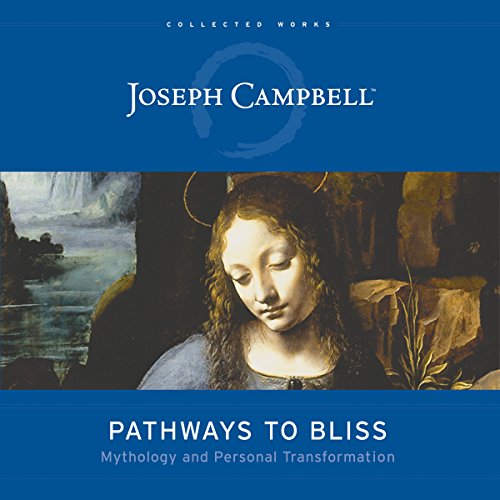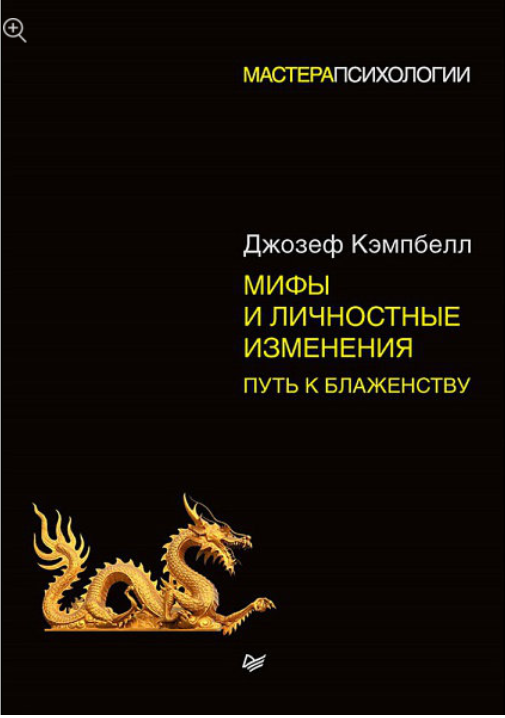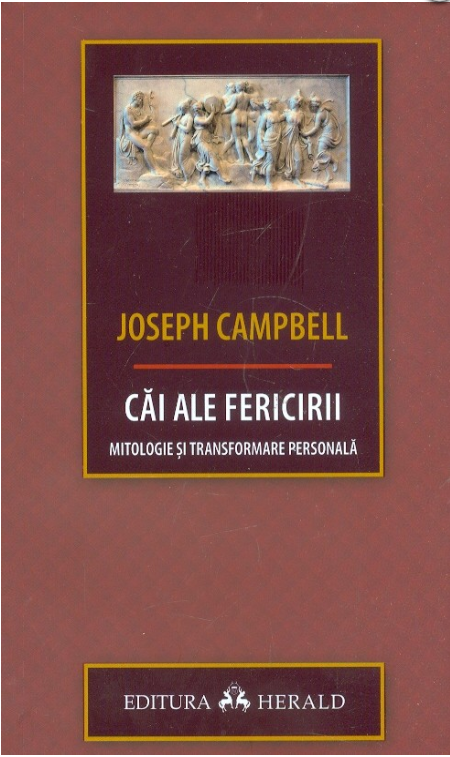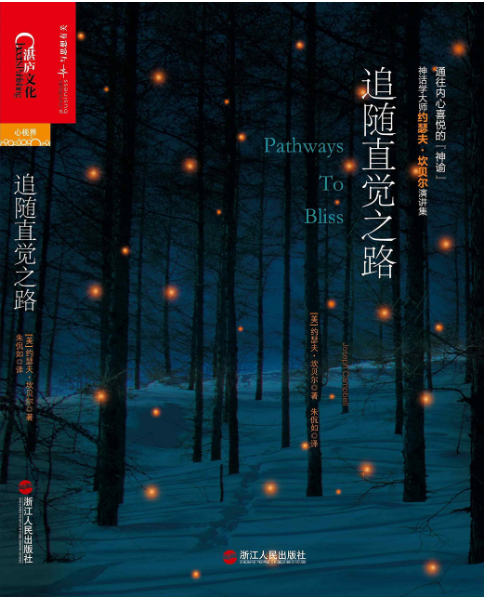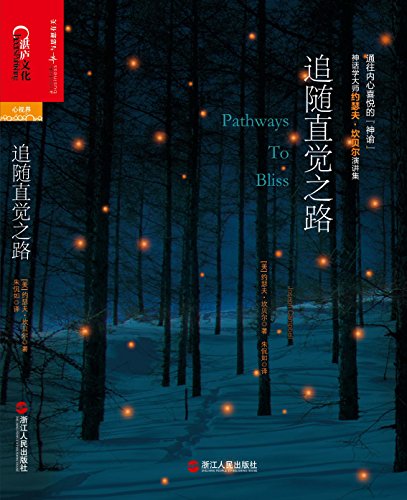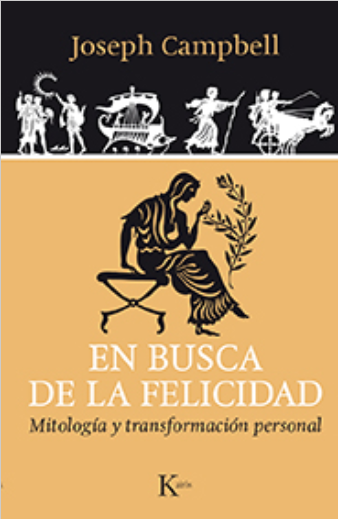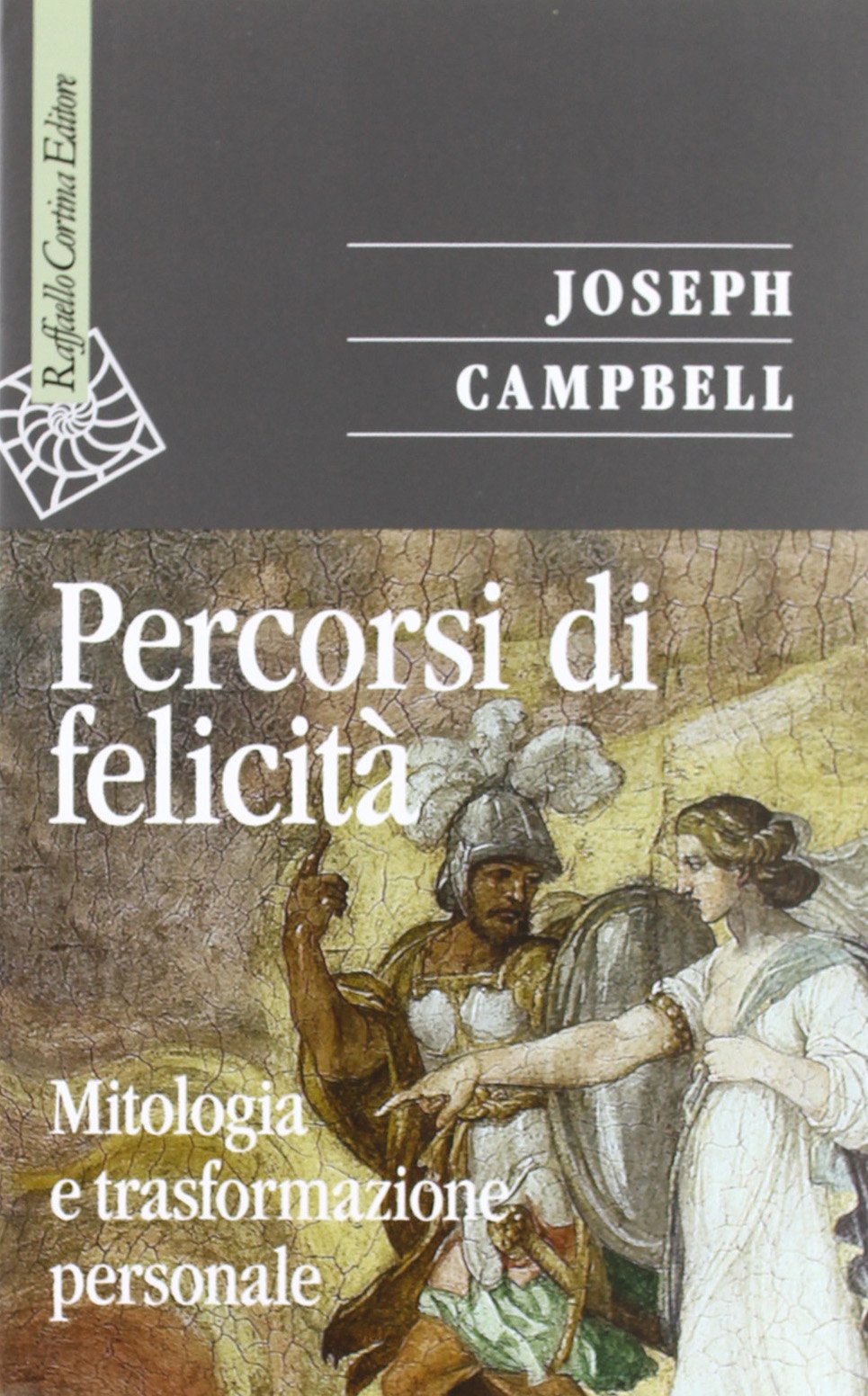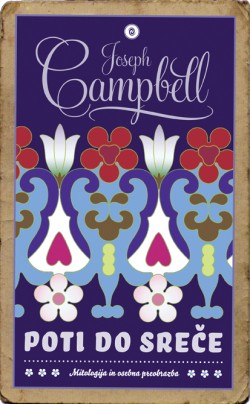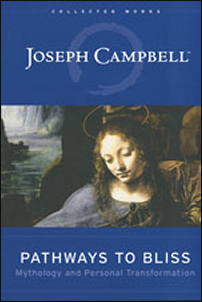
Pathways to Bliss: Mythology and Personal Transformation
By Joseph Campbell | Edited by David Kudler
This title is part of the The Collected Works of Joseph Campbell series
Joseph Campbell famously defined myth as “other people’s religion.” But he also said that one of the basic functions of myth is to help each individual through the journey of life, providing a sort of travel guide or map to reach fulfillment — or, as he called it, bliss. For Campbell, many of the world’s most powerful myths support the individual’s heroic path toward bliss.
In Pathways to Bliss, Campbell examines this personal, psychological side of myth. Like his classic best-selling books Myths to Live By and The Power of Myth, Pathways to Bliss draws from Campbell’s popular lectures and dialogues, which highlight his remarkable storytelling and ability to apply the larger themes of world mythology to personal growth and the quest for transformation. Here he anchors mythology’s symbolic wisdom to the individual, applying the most poetic mythical metaphors to the challenges of our daily lives.
Campbell dwells on life’s important questions. Combining cross-cultural stories with the teachings of modern psychology, he examines the ways in which our myths shape and enrich our lives and shows how myth can help each of us truly identify and follow our bliss.
The shadow is, so to say, the blind spot in your nature. It’s that which you won’t look at about yourself. This is the counterpart exactly of the Freudian unconscious, the repressed recollections as well as the repressed potentialities in you. [share]
“The stress on the sexual character of the deity—whether male or female—is secondary and, in certain contexts, baffling. It was originally oriented toward the masculine to establish the superiority of the patriarchal societies over the matriarchal. . . . Folks in the Orient don’t have this problem. Eastward of Persia, in India and China, the old mythology carries the idea of the cosmic cycle—the impersonal order behind the universe—up into the contemporary world. You have the Indian idea of dharma and the kalpa, the Chinese concept of the Tao and so forth. These concepts, which are as ancient as the written word, transcend gender.” [share]
All life has drudgery to it . . . Sometimes the drudgery itself can become part of the hero deed. The point is not to get stuck in the drudgery but to use it to free you. [share]
We live, on this side of the mystery, in the realm of the pairs of opposites: true and false, light and dark, good and evil, male and female, and all that dualistic rational worldview. One can have an intuition that is beyond good and evil, that goes beyond pairs of opposites — that’s the opening of this gateway into the mystery. [share]
The whole idea is that you’ve got to bring out again that which you went to recover, the unrealized, unutilized potential in yourself. [share]
[Paul Gaugin] was a perfectly prosperous businessman with a family and a house; then he became fascinated by what began to open up for him in painting. You start doodling with things like painting and they might doodle you out of your life – that's what happened to Gaugin. [share]
A mythologically grounded culture presents you with symbols that immediately evoke your participation; they are all vital, living connections, and so they link you both to the underlying mystery and to the culture itself. Yet when the culture uses symbols that are no longer alive, that are no longer effective, it cuts you off. [share]
Eternity is not future or past. Eternity is a dimension of now. It is a dimension of the human spirit –– which is eternal. Find that eternal dimension in yourself, and you will ride through time and throughout the whole length of your days. [share]
The principle of compassion is that which converts disillusionment into a participatory companionship. . . . This is the basic love, the charity, that turns a critic into a living human being who has something to give to –– as well as demand of –– the world. [share]
Marsupial babies grow in a second womb, a womb with a view. We need mythology as the marsupial needs the pouch to develop beyond the stage of the incompetent infant to a stage where it can step out of the pouch and say, "Me, voilà: I'm it." [share]
In a wonderful essay called "On an Apparent Intention in the Fate of the Individual," Schopenhauer points out that, once you have reached an advanced age, as I have, as you look back over your life, it can seem to have had a plot, as though composed by a novelist. Events that seemed entirely accidental and incidental turn out to have been central to the composition. [share]
Alan Watts used to tell the story of the Apollo astronaut who came back from space; some smart-aleck reporter asked, since he’d been to heaven, had he seen God? ‘Yes,’ answered the astronaut, ‘and she’s black.' [share]
Mythologies present games to play: how to make believe you're doing thus and so. Ultimately, through the game, you experience that positive thing which is the experience of being-in-being, of living meaningfully. That's the first function of a mythology, to evoke in the individual a sense of grateful affirmative awe before the monstrous mystery that is existence. [share]
Take guidance and instruction from others, but find your own path. [share]
Enter the forest at the darkest point, where there is no path. [share]
Two things pull people together: aspiration and terror. These are what glue a society together. [share]
Nothing you can do is more important than being fulfilled. [share]
Find the zeal in yourself and bring that out. [share]
What is it we are questing for? It is the fulfillment of that which is potential in each of us. Questing for it is not an ego trip; it is an adventure to bring into fulfillment your gift to the world, which is yourself. [share]
What is it we are questing for? It is the fulfillment of that which is potential in each of us. Questing for it is not an ego trip; it is an adventure to bring into fulfillment your gift to the world, which is yourself. There is nothing you can do that's more important than being fulfilled. You become a sign, you become a signal, transparent to transcendence; in this way you will find, live, become a realization of your own personal myth. [share]
There are no two brains alike; there are no two hands alike; there are no two human beings alike. You can take your guidance and instruction from others, but you must find your own path. [share]
In the West, you have the liberty and the obligation of finding out what your destiny is. You can discover it for yourself. But do you? Of course, it doesn’t hurt to be blessed with the accident of money, and a certain amount of support, and a margin of free time. But let me say this: people without money very often have the courage to risk a life of their own, and they can do it. Money doesn’t count, it’s not that important in our culture; it really isn’t. [share]
Mythologies present games to play: how to make believe you're doing thus and so. Ultimately, through the game, you experience that positive thing which is the experience of being-in-being, of living meaningfully. That's the first function of a mythology, to evoke in the individual a sense of grateful affirmative awe before the monstrous mystery that is existence. [share]
The stress on the sexual character of the deity—whether male or female— is secondary and, in certain contexts, baffling. It was originally oriented toward the masculine to establish the superiority of the patriarchal societies over the matriarchal. [share]
Now, all these myths that you have heard and that resonate with you, those are the elements from round about that you are building into a form in your life. The thing worth considering is how they relate to each other in your context, not how they relate to something out there - how they were relevant on the North American prairies or in the Asian jungles hundreds of years ago, but how they are relevant now - unless by contemplating their former meaning you can begin to amplify your own understanding of the role they play in your life [share]
What the relationship of the Father and the Son and the Holy Ghost to each other might be, in technical terms, is not half as important as you, the celebrant, feeling the virgin birth within you, the birth of the mystic, mythic being that is your own spiritual life." [share]
There's nothing you can do that's more important than being fulfilled. You become a sign, you become a signal, transparent to transcendence; in this way, you will find, live, and become a realization of your own personal myth [share]
What the mythic image shows is the way in which the cosmic energy manifests itself in time, and as the times change, the modes of manifestation change. [share]
What I think is that a good life is one hero journey after another. Over and over again, you are called to the realm of adventure, you are called to new horizons. Each time, there is the same problem: do I dare? And then if you do dare, the dangers are there, and the help also, and the fulfillment or the fiasco. There’s always the possibility of a fiasco. But there’s also the possibility of bliss. [share]
Perfection is inhuman. Human beings are not perfect. What evokes our love––and I mean love, not lust––is the imperfection of the human being. So, when the imperfection of the real human peeks through, say, "This is a challenge to my compassion." Then make a try, and something might begin to get going. [share]
This is what Joyce called the monomyth: an archetypal story that springs from the collective unconscious. Its motifs can appear not only in myth and literature, but, if you are sensitive to it, in the working out of the plot of your own life. The basic story of the hero journey involves giving up where you are, going into the realm of adventure, coming to some kind of symbolically rendered realization, and then returning to the field of normal life. [share]
Make your god transparent to the transcendent, and it doesn't matter what his name is. [share]
You enter the forest at the darkest point, where there is no path. Where there is a way or path, it is someone else's path. [share]
All life stinks and you must embrace that with compassion. [share]
The basic story of the hero journey involves giving up where you are, going into the realm of adventure, coming to some kind of symbolically rendered realization, and then returning to the field of normal life. [share]
What I think is that a good life is one hero journey after another. Over and over again, you are called to the realm of adventure, you are called to new horizons. Each time, there is the same problem: do I dare? And then if you do dare, the dangers are there, and the help also, and the fulfillment or the fiasco. There's always the possibility of a fiasco. But there's also the possibility of bliss. [share]
A mythological order is a system of images that gives consciousness a sense of meaning in existence, which, my dear friend, has no meaning––it simply is. But the mind goes asking for meanings; it can't play unless it knows (or makes up) the rules. Mythologies present games to play: how to make believe you're doing thus and so. Ultimately, through the game, you experience that positive thing which is the experience of being-in-being, of living meaningfully. That's the first function of a mythology, to evoke in the individual a sense of grateful affirmative awe before the monstrous mystery that is existence. [share]
Revolution doesn't have to do with smashing something, it has to do with bringing something forth. If you spend all your time thinking about that which you are attacking, then you are negatively bound to it. You have to find the zeal in yourself and bring that out. [share]
What myth does for you is to point beyond the phenomenal field toward the transcendent. A mythic figure is like the compass that you used to draw circles and arcs in school, with one leg in the field of time and the other in the eternal. The image of a god may look like a human or animal form, but its reference is transcendent of that. [share]
All of the great cathedrals of Europe were built during this lunatic century between 1150 and 1250. People didn't have enough money then to buy two cows, let alone two cars. What were they living for? And you mustn't think of slave drivers; that isn't what built the cathedrals. It was a community seizure, a mythic zeal. [share]
Filter:
Sort:



